Curriculum

Learning and Teaching at Kennedy School
At Kennedy School, we use the International Baccalaureate, Primary Years Programme (IB PYP) framework to shape our learning.
Our commitments to our students are:
Fostering Well-being
- We foster an environment where everyone feels included and connected while celebrating what makes each person unique.
- We ensure safety and well-being, engaging with empathy, kindness, and understanding.
- We learn from mistakes, build resilience and develop skills to adapt.
Inspiring Learning, Growth & Innovation
- We inspire a love of active learning, creativity, and curiosity, where personalised experiences encourage questions and exploration
- We face our challenges and embrace change.
- We use innovative and effective ways of teaching and learning, integrating technology, to develop future-focused learners.
Taking Action & Making a Difference
- We help students lead their own learning, giving them voice and choice.
- We guide learners to make responsible choices through informed decision-making.
- We inspire young people to create positive change in their world.
Learning at Kennedy School is:
- Student-centred
- Life long
- Inclusive
- Meaningful and Deep
Student-Centred
- Students are learning at their own pace and in ways that best suit their unique interests, empowering them to set and reflect on their own learning goals.
- Educators are designing flexible learning spaces, modelling reflective practices, and creating engaging, adaptable tasks that cater to every student.
Life long
- Students are actively asking questions and seeking out new knowledge, demonstrating a genuine desire to understand the world around them.
- Students are collaborating effectively in groups, valuing diverse perspectives, and learning from their peers.
- Educators are encouraging exploration and critical thinking, guiding students to discover answers rather than simply providing them.
- Educators are fostering independence by providing students with choices in resources, flexible learning spaces, and collaborative groupings.
Inclusive
- Students are describing their strengths and stretches, and actively using tools and strategies to support their learning journey.
- Students are exploring their identity and sharing how the people in their classroom and school provide them with safety, support, and a sense of belonging.
- Educators are creating a welcoming and inclusive space where every student feels a sense of belonging by modelling respect, celebrating achievements, and building positive relationships.
- Educators use data from various sources, such as teacher assessments, student voice, and parent feedback, to inform their planning and decision-making.
Meaningful and Deep
- Students are moving beyond simple answers to explain the "why" and "how" behind their ideas.
- Students are making connections to prior learning, across different subjects, and applying their understanding to new, real-world contexts.
- Educators are prompting for justification with questions like, "What makes you say that?" or "Tell me more," encouraging students to articulate their reasoning.
- Educators are connecting learning across disciplines and modelling opportunities for students to transfer concepts and skills to real-world settings.
Programme of Inquiry
The best learning happens when we make connections. In our programme, subjects are connected through our "Programme of Inquiry" (POI). We can imagine this as a big puzzle with different pieces that all fit together. Here are the main themes your child will explore throughout their years at Kennedy School:
- Who We Are: Learning about themselves, their identity, well-being and belonging
- Where We Are in Place and Time: Understanding place, space and time - our history, heritage, culture and environment
- How We Express Ourselves: Discovering different ways to communicate and be creative
- How the World Works: Uncovering the secrets of the natural world and how we discover, design and innovate
- How We Organise Ourselves: Learning about systems and structures in the world
- Sharing the Planet: Understanding how the human and natural world co-exist
Each year, your child will explore these themes in engaging Units of Inquiry. You can find more details about what they will learn by clicking the link below:
Kennedy School Programme of Inquiry
In Summary:
At Kennedy School, we use the International Baccalaureate (IB) framework to inspire a love for learning. We focus on student well-being, encourage them to take action, and foster a student-centred environment. Our curriculum helps students think critically and connect what they learn to the world around them, all through our "Programme of Inquiry" that ties subjects together.
Want to learn more?
- You can find more information about the IB PYP programme here: http://ibo.org/programmes/primary-years-programme/
- For details about the IB PYP at Kennedy School, contact our Vice Principal, Catherine Carter at ccarter@kennedy.edu.hk
Core Disciplines
As an International Baccalaureate Primary Years Programme (PYP) school, we address core disciplines through both integrated units of inquiry and discrete subject instruction.
Here is the PYP Curriculum Model:

